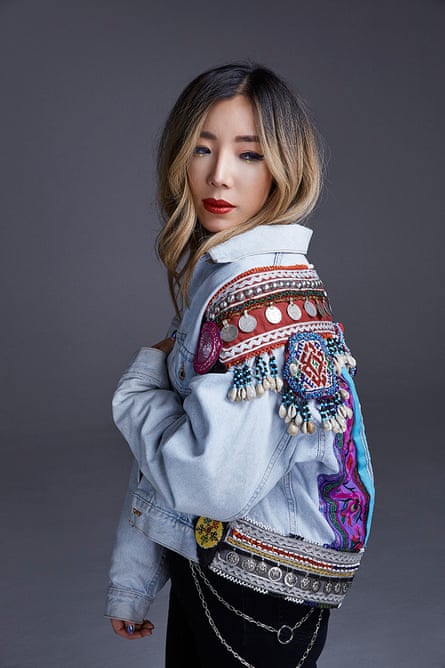As per the Tribe Called Quest album, hip-hop is about beats, rhymes and life. The first of these can often get overlooked in favour of the second, but production is an essential part of the genre’s appeal. A slick production has the power to drive the lyrical message home: from the 80s, when Audio Two dropped their Daddy-O-produced classic Top Billin’; to 2001, when Dr Dre laced Still D.R.E with his signature aesthetic; to the twisted work of Hit-Boy for stars of this decade such as Kendrick Lamar and Kanye West.
One thing remains clear: production skews heavily towards men. Recent darlings include Mike Will Made-It, Murda Beatz, London on da Track, DJ Mustard – the list goes on. But as hip-hop evolves, more and more women are entering the production game.
The gender ratio isn’t yet equal, but far more women are getting production credits than when LA producer Georgia Anne Muldrow, 34, came on the scene in the early 00s. “At that time, there weren’t any other female producers in my social circle. But there were awesome female MCs,” she says. “You had Rah Digga, Digable Planets’ Ladybug Mecca, Missy Elliot. But I wasn’t hooked up with them – everyone was just kind of doing their own thing. The idea was just to be dope and get your stuff heard.”
Now, with female producers proliferating, women are expecting rather more than just getting heard – they can end up working with some of the genre’s biggest stars. Some gaining clout include Ebony “WondaGurl” Oshunrinde, who at just 21 has already made tracks for Drake, Travis Scott, Jay-Z and Rihanna, and the Virginia-based producer Shakari “Trakgirl” Boles, who has been in the studio with Omarion, Luke James and Jhené Aiko. She says that being a woman is no longer an impediment to getting ahead in the rap game. “The issue that I’ve had is something that happens in general: being undervalued and underappreciated,” says Boles. “That’s the same in any industry. But I would say it was a disadvantage being a woman in the beginning. I was underestimated. I’ve learned to build an armour when it comes to that.”

“I’m not offered some opportunities, I think, just because I am a woman,” says Harlem’s Crystal Caines (above), a producer since 2014. “I can’t assume, but ... those opportunities are present, and yet they will give them to men over me.” But she sees the situation improving. “I was acknowledged as a producer first – now, I’m able to introduce myself as an artist, a producer and an engineer.” Caines, 26, is known for her haunting, slowed-down sound, which can be heard on tracks by artists such as A$AP Ferg, Smoke DZA and female rapper Bbymutha. “I just love making the artist uncomfortable sonically – that’s when they get the best product from me.”
LA producer Jennifer “Tokimonsta” Lee gained credibility within the electronic scene as well as hip-hop and R&B, working with Anderson Paak and Isaiah Rashad. The way to win, she says, is to keep your ego in check and continue to prove yourself. “I’ve never tried to use my gender as a crutch or a gimmick. I just sought to earn the respect of my peers,” she says. “When I was starting out, there were always these little rumours that I had a boyfriend who taught me everything I knew, or I had a ghostwriter making my beats for me. Many of my peers applauding me were male, so people would think: ‘Maybe she’s dating [electronic producer] Flying Lotus. That’s why she got signed to this label.’ They overlooked the music to some degree, and I found that difficult.”
But, Muldrow says, while sexism still exists, the industry has advanced to the point where you can no longer make the excuse that being female is holding you back. “You can’t use that no more, because there are more women producers,” she says. “Now, it’s like, ‘Well, join the club!’ What’s gonna make you unique is being authentic; if you ain’t born to do it, quit and figure out what it is you’re born to do. When you’re in there, you’ve gotta jam like your life depends on it. Put in that work. That’s what it’s about.”

Comments (…)
Sign in or create your Guardian account to join the discussion